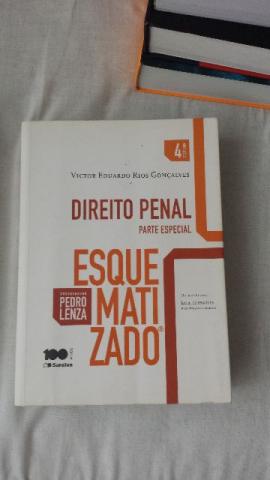Enciclopedia Saraiva De Direito
Franca, Rubens Limongi. & Saraiva S.A. 1977, Enciclopedia Saraiva do direito: edicao comemorativa do sesquicentenario da fundacao dos cursos juridicos no Brasil, 1827-1977 / coordenacao do Prof. Limongi Franca Saraiva Sao Paulo Wikipedia Citation. Download enciclopedia saraiva do direito or read online here in PDF or EPUB. Please click button to get enciclopedia saraiva do direito book now. All books are in clear copy here, and all files are secure so don't worry about it. This site is like a library, you could find million book here by using search box in the widget. Curso De Direito.
Catalogue Persistent IdentifierAPA CitationFranca, Rubens Limongi. & Saraiva S.A. Enciclopedia Saraiva do direito: edicao comemorativa do sesquicentenario da fundacao dos cursos juridicos no Brasil, 1827-1977. Sao Paulo: Saraiva MLA CitationFranca, Rubens Limongi. and Saraiva S.A. Enciclopedia Saraiva do direito: edicao comemorativa do sesquicentenario da fundacao dos cursos juridicos no Brasil, 1827-1977 / coordenacao do Prof. Limongi Franca Saraiva Sao Paulo 1977 Australian/Harvard CitationFranca, Rubens Limongi. & Saraiva S.A. 1977, Enciclopedia Saraiva do direito: edicao comemorativa do sesquicentenario da fundacao dos cursos juridicos no Brasil, 1827-1977 / coordenacao do Prof. Limongi Franca Saraiva Sao Paulo Wikipedia Citation.
Author by: Massimo CanevacciLanguage: enPublisher by: BoD – Books on DemandFormat Available: PDF, ePub, MobiTotal Read: 82Total Download: 199File Size: 44,6 MbDescription: This book connects anthropology and polyphony: a composition that multiplies the researcher's glance, the style of representation, the narrative presence of subjectivities. Polyphonic anthropology is presenting a complex of bio-physical and psycho-cultural case studies. Digital culture and communication has been transforming traditional way of life, styles of writing, forms of knowledge, the way of working and connecting.

Ubiquities, identities, syncretisms are key-words if a researcher wish to interpret and transform a cultural contexts. It is urgent favoring trans-disciplinarity for students, scholars, researchers, professors; any reader of this polyphonic book has to cross philosophy, anatomy, psychology, psychoanalysis, sociology, architecture, archeology, biology. I believe in an anthropological mutation inside any discipline.
Enciclopedia Saraiva De Direito Ecuador


And I hope this book may face such a challenge. Author by: Stefan Albrecht RiesenfeldLanguage: enPublisher by: Aspen PubFormat Available: PDF, ePub, MobiTotal Read: 42Total Download: 596File Size: 40,9 MbDescription: This book represents the culmination of a project initiated in 1990 which brought together a distinguished group of judges, scholars and government officials to address the role of parliaments in the making and implementation of international treaty law. Treaties are increasingly employed to define the rights and obligations of individuals in the field of human rights, To regulate the participation of persons (both individual and corporate) across the broad spectrum of economic activity within and across national boundaries, As well as to control human activity as it impacts on the environment. These are matters which historically were largely within the regulatory competence of national authorities, but now are increasingly the subject of international legislation. But the role of the parliament with respect To The making of international legislation has remained substantially confined within a customary historical model.
For the past several centuries, The national executive has played the principal role in the initiation, negotiation, conclusion and operation of treaties. The parliament's role has been secondary, being largely confined To The approval or rejection of engagements proposed by the executive. Over the past decades there has been a movement in a number of countries toward a more active role for parliament, particularly with respect to demands to provide guidance To The executive. Nevertheless, while the historical distribution of treaty powers may remain appropriate in traditional areas of executive prerogative (for example, In the realm of political relations and national security), one must question the extent to which increased parliamentary participation is adequate in relation To The making of international law by treaty, particularly when the treaty is an instrument with national legislative effects. This volume is an important and timely resource for those who wish to pursue the question of the actual or desirable role of parliaments in the making and operation of treaties.
